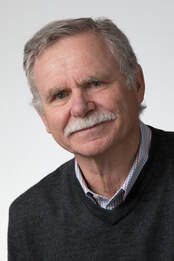But locking up addicts is not the answer.The Higgs government of New Brunswick has put off for now its lurching ride toward an election. Part of the guessing game for citizens has been what Higgs saw as his government’s unifying Throne Speech on Oct. 17. Yet hidden in the soft tones of the Throne Speech is an unfortunate approach to the problem which New Brunswick and all other provinces have, that of addiction, mental illness, and homelessness. Concerning addiction, the Throne Speech says the government “will empower judges and hearing officers to order treatment for Severe Substance Abuse Disorder through the new Compassionate Intervention Act. This legislation is to help, in extreme cases, those individuals who are struggling with addiction and unable to meet their own basic needs.” This is what William Shakespeare, in his famous play Romeo and Juliet called a “Rose by Any Other Name.” What Shakespeare was saying in simple terms, is that we cannot change the essence of things, just by dressing them up with pretty words. So, in calling this new legislation the “Compassionate Intervention Act” the government is just using comforting words for saying that addicts will be forced against their will to receive corrective treatment. Some people may find the government’s promised approach more acceptable for persons addicted to street drugs. But picture for a minute a much larger addiction problem, one common to many families, that of addiction to alcohol. Should the young alcoholic, or his Uncle Johnny or Aunt Susie, be forced to go into rehab, or should they need finally to admit to themselves they have a problem and seek out all available help to meet a rehab goal.
In this writer’s extended family, there have been several individuals with serious alcohol problems over this generation and the last. It is a very real thing, and a great hardship for sufferers and their families to live with or even talk about. Addiction of all kinds is a serious health and social problem. It is complex, requiring a wide range of social services to address, including a basic living income, adequate housing, good nutrition, and strong mental and general health services. Friends and family can also have a huge role in providing encouragement, advice, and support. Take the example of Emily Bodechon of the group “Moms Stop the Harm” fighting for her 29-year-old son, Albert, who has been living on Canadian streets since graduating from high school. Ms. Bodechon says her son is now sober and she knows that if she had opted for compulsory rehab, it simply would not have worked. Yes, there were some more comforting words in the Throne Speech about additional rehab beds in the province, “with a potential to serve an additional 100 to 140 each year, depending on length of stay.” This additional capacity unfortunately will not help much. Under the proposed new legislation, sufferers like Emily Bodechon’s son Albert would likely have been destined to end up in involuntary treatment. For all forms of addiction, locking up sufferers is not the answer.
0 Comments
Your comment will be posted after it is approved.
Leave a Reply. |




